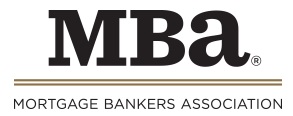WASHINGTON, D.C. – (RealEstateRama) – Mortgage applications decreased 11.9 percent from one week earlier, according to data from the Mortgage Bankers Association’s (MBA) Weekly Mortgage Applications Survey for the week ending October 18, 2019.
The Market Composite Index, a measure of mortgage loan application volume, decreased 11.9 percent on a seasonally adjusted basis from one week earlier. On an unadjusted basis, the Index decreased 12 percent compared with the previous week. The Refinance Index decreased 17 percent from the previous week and was 126 percent higher than the same week one year ago. The seasonally adjusted Purchase Index decreased 4 percent from one week earlier. The unadjusted Purchase Index decreased 4 percent compared with the previous week and was 6 percent higher than the same week one year ago.
“Interest rates continue to be volatile, with Brexit votes and ongoing trade negotiations swinging rates higher or lower on any given day. Last week, mortgage rates jumped 10 basis points and were above 4 percent for the first time since September,” said Mike Fratantoni, MBA Senior Vice President and Chief Economist. “The increase in mortgage rates caused refinance applications to drop 17 percent, and by more than 20 percent for conventional loans. Borrowers with larger loans are the most sensitive to rate changes, and with rates climbing higher last week, the average size of a refinance loan application fell to its lowest level this year.”
Added Fratantoni, “Although purchase applications declined, application volume is still running about 6 percent ahead of this time last year. Low mortgage rates continue to fuel buyer interest, but supply and affordability challenges persist.”
The refinance share of mortgage activity decreased to 58.5 percent of total applications from 62.2 percent the previous week. The adjustable-rate mortgage (ARM) share of activity decreased to 4.8 percent of total applications.
The FHA share of total applications increased to 12.1 percent from 11.3 percent the week prior. The VA share of total applications increased to 13.5 percent from 12.9 percent the week prior. The USDA share of total applications increased to 0.5 percent from 0.4 percent the week prior.
The average contract interest rate for 30-year fixed-rate mortgages with conforming loan balances ($484,350 or less) increased to 4.02 percent from 3.92 percent, with points increasing to 0.38 from 0.35 (including the origination fee) for 80 percent loan-to-value ratio (LTV) loans. The effective rate increased from last week.
The average contract interest rate for 30-year fixed-rate mortgages with jumbo loan balances (greater than $484,350) increased to 3.96 percent from 3.90 percent, with points increasing to 0.30 from 0.23
(including the origination fee) for 80 percent LTV loans. The effective rate increased from last week.
The average contract interest rate for 30-year fixed-rate mortgages backed by the FHA increased to 3.79 percent from 3.77 percent, with points increasing to 0.26 from 0.19 (including the origination fee) for 80 percent LTV loans. The effective rate increased from last week.
The average contract interest rate for 15-year fixed-rate mortgages increased to 3.39 percent from 3.32 percent, with points increasing to 0.35 from 0.31 (including the origination fee) for 80 percent LTV loans. The effective rate increased from last week.
The average contract interest rate for 5/1 ARMs decreased to 3.29 percent from 3.37 percent, with points increasing to 0.35 from 0.23 (including the origination fee) for 80 percent LTV loans. The effective rate decreased from last week.
If you would like to purchase a subscription of MBA’s Weekly Applications Survey, please visit www.mba.org/WeeklyApps, contact or click here.
The survey covers over 75 percent of all U.S. retail residential mortgage applications, and has been conducted weekly since 1990. Respondents include mortgage bankers, commercial banks and thrifts. Base period and value for all indexes is March 16, 1990=100
CONTACT
Adam DeSanctis
(202) 557-2727


